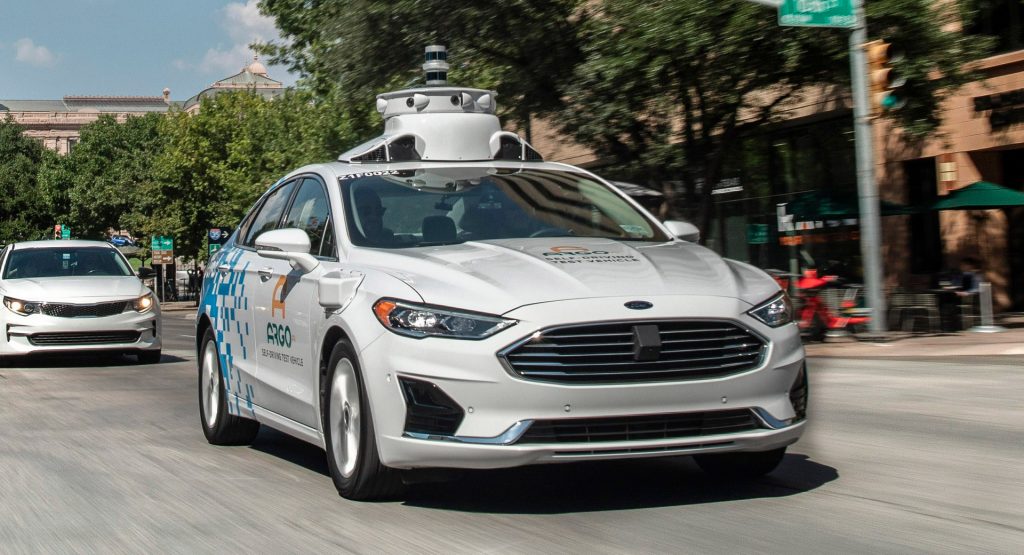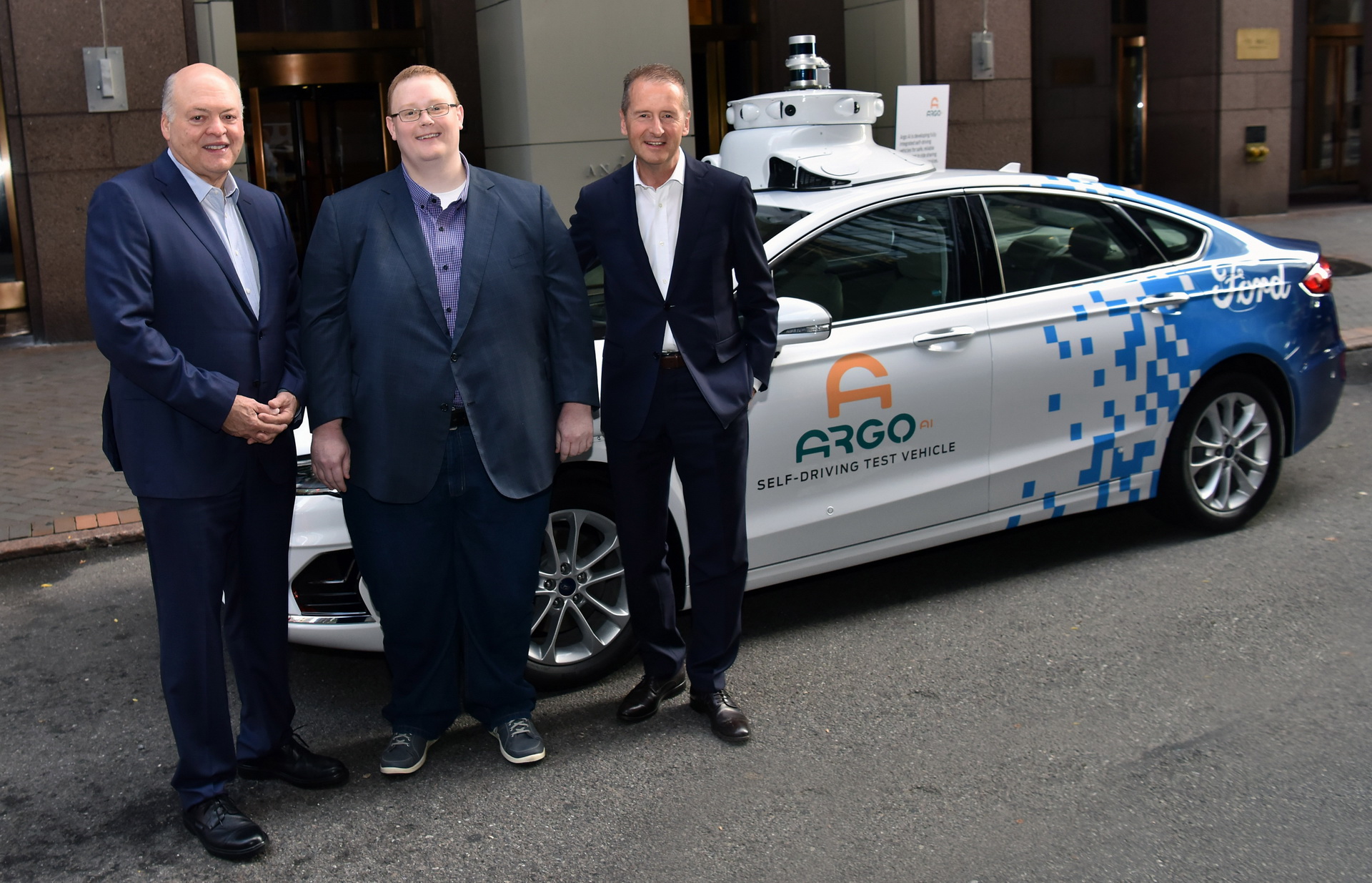Last year, Ford and Volkswagen teamed up to invest in Argo AI, an autonomous vehicle platform company, at a valuation of more than $7 billion.
Their common investment will allow both companies to independently integrate Argo AI’s self-driving system into their own vehicles, allowing them to scale up production on a global level, while also improving their competitiveness in this growing sector.
This newly-founded global alliance, which doesn’t involve any cross-ownership between the two carmakers, will also result in Ford using VW’s MEB electric vehicle architecture to design and build at least one high-volume EV model in Europe come 2023.
Read Also: VW And Ford Moving Ahead With EV Tech Sharing Strategy Despite COVID-19 Delays
Recently, Ford Autonomous Vehicles CEO and Mobility VP John Lawler, went on record talking about this partnership and what it means to his company.
“In my previous role as vice president of Ford corporate strategy, I can tell you firsthand the moment our teams started talking, all three parties could see the value of working together. Here’s what we saw and why we believe it works for everyone involved — including our future customers.”
“Building a safe, scalable and trusted self-driving service, however, is no small task. It’s also not a cheap one. We’ve committed to spending more than $4 billion through 2023 on the development of our self-driving service. A large part of this investment is dedicated to developing the self-driving system. With Volkswagen’s investment in Argo AI, we will now share the cost of developing Argo AI’s technology.”
Last month, a report came out that Ford’s strategy for a commercial rollout of robotaxis and driverless delivery pods in the U.S. has been set back by the viral outbreak, and delayed until 2022.
“In addition to shared development costs, the deal with Volkswagen makes Argo AI’s self-driving software the first with commercial deployment plans for both Europe and the U.S. Because it can tap into both automakers’ global reach, Argo AI’s platform has the largest geographic deployment potential of any autonomous driving technology to date. Scale and geographic reach are important factors in developing a self-driving system that is robust and cost efficient,” added the Ford exec.








